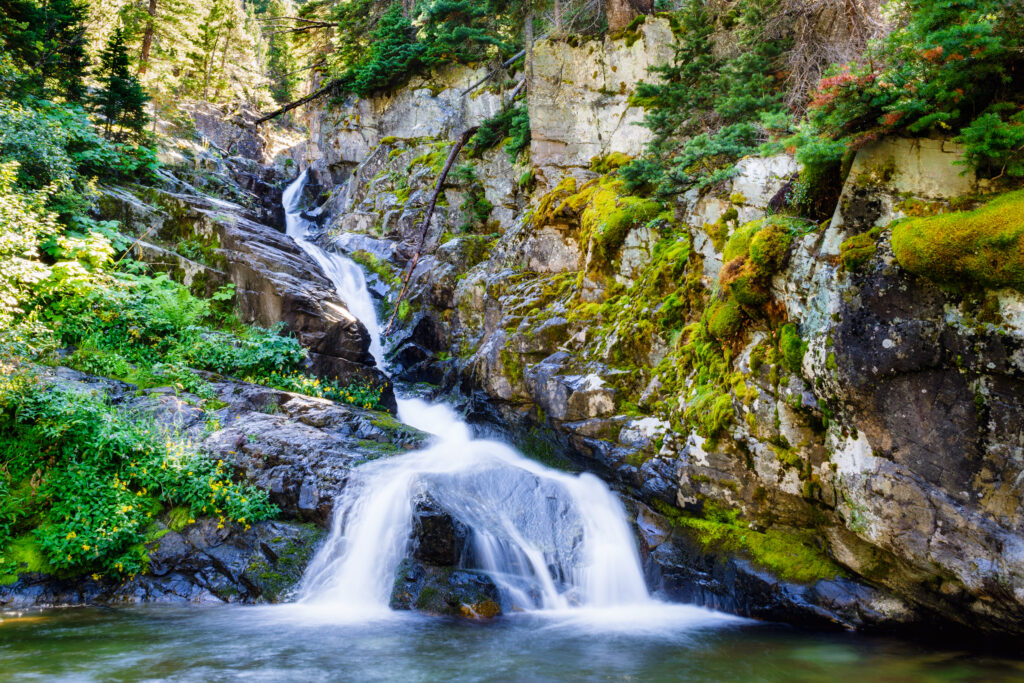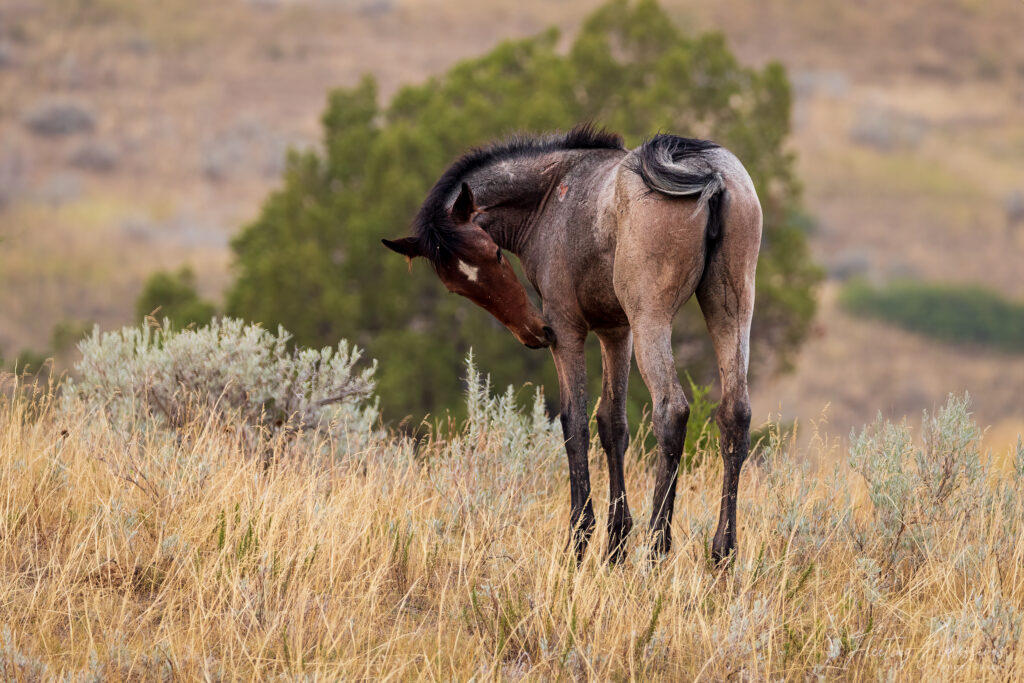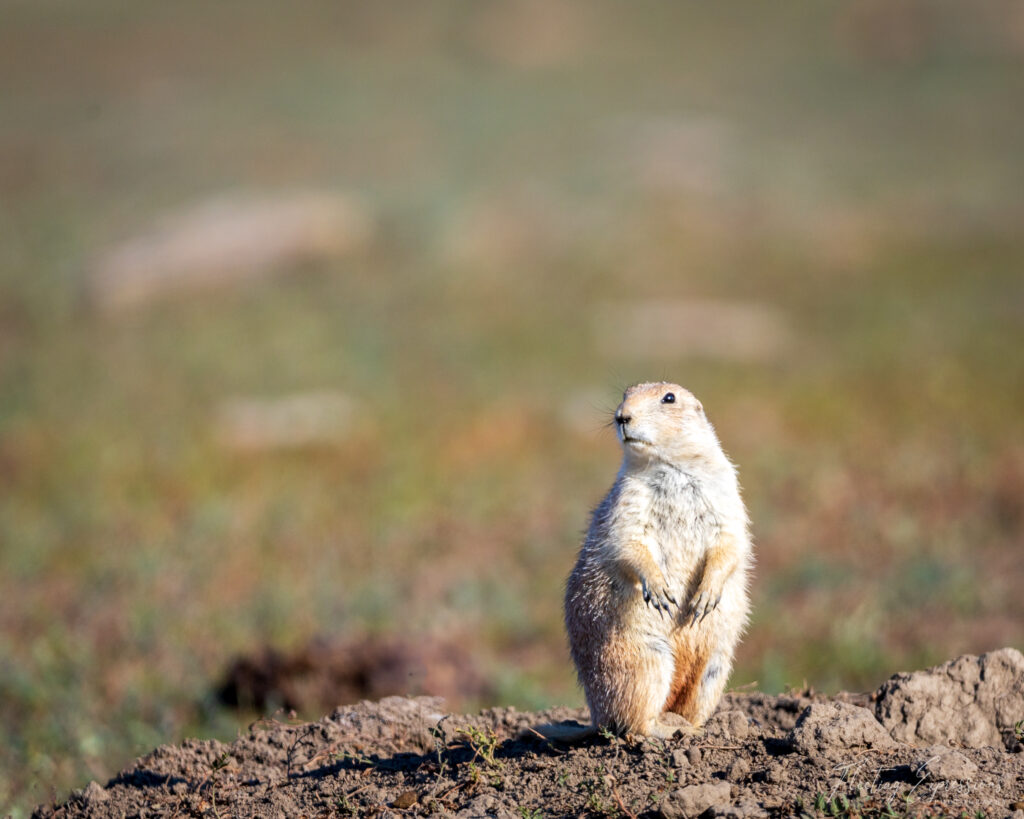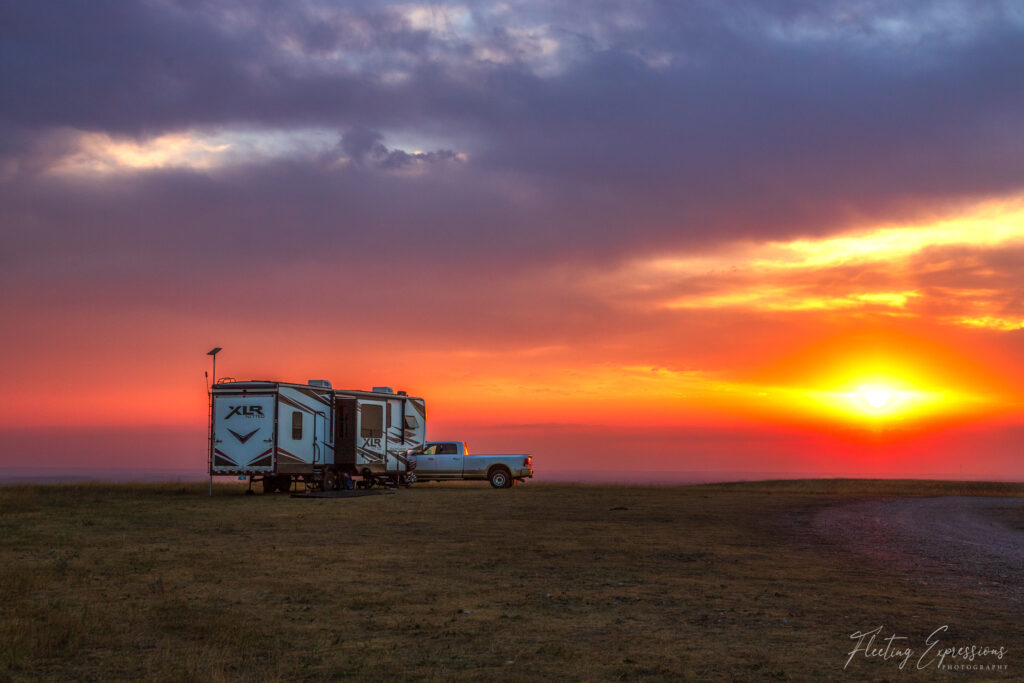There’s something undeniably magical about hiking to a waterfall. The journey often starts peacefully, with the gentle crunch of dirt and leaves beneath your boots as you walk through a shaded forest. As you wind through towering trees and follow the twists of the trail, there’s a growing anticipation. A gentle breeze brings the cool scent of damp earth and pine to your senses. The sound of the falls builds, an unseen force pulling you closer to the hidden magic just ahead.
The steady hum of the waterfall becomes the soundtrack to your adventure, blending with birdsong and the rustle of the wind in the trees. With each step, the excitement builds, your heart quickening in time with the growing rush of water ahead. When you finally arrive, the sight of cascading water pouring over rocks is both powerful and serene. It’s a reward not just for your legs but for your senses—the mist that gently touches your skin, the rhythmic pulse of the water, and the beauty of a natural wonder tucked away in the wilderness.
Waterfall hikes offer the perfect blend of peace and exhilaration, making every trail feel like a journey into the heart of nature’s most enchanting spaces. In this post, I will share the experience of hiking to three amazing waterfalls on the east side of Glacier National Park. Barring Falls offers a hidden charm nestled in a quiet cove, while Running Eagle Falls surprises with its unique double cascade. Aster Falls, with its peaceful forested trail, rewards hikers with a serene view of tumbling waters. Let’s explore each waterfall in a bit more depth.
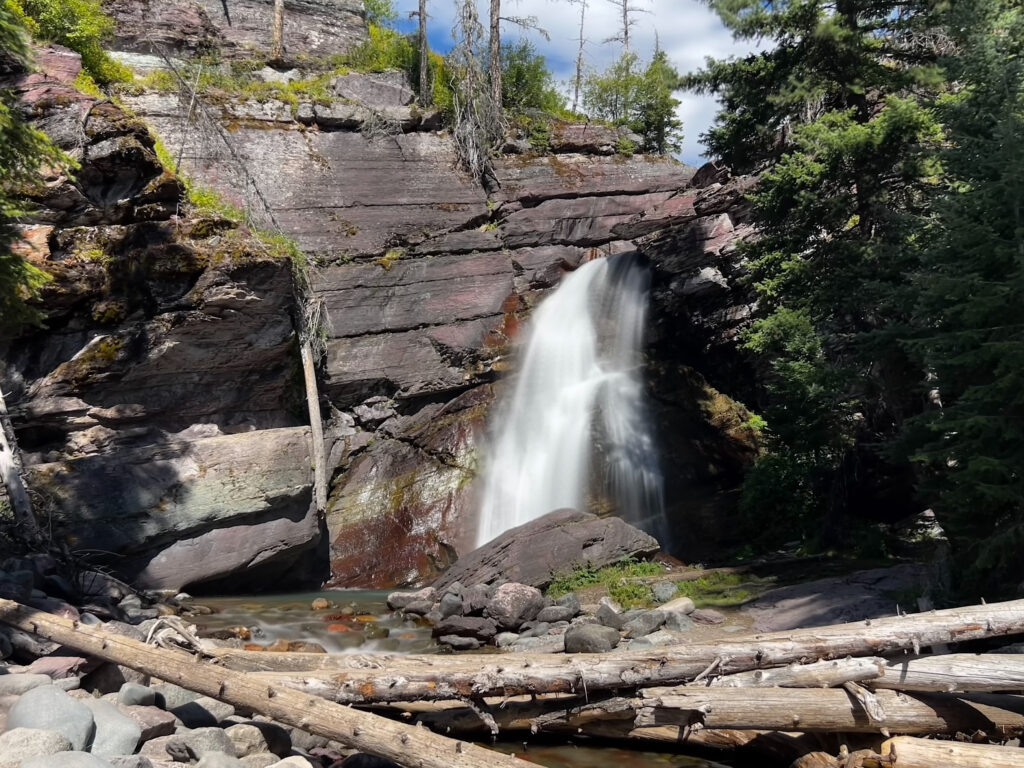
Baring Falls
Baring Falls, located along the Going-to-the-Sun Road, is easily accessible from Sun Point and Sunrift Gorge. It’s a lesser-known but stunning waterfall with several trailhead options as a starting point. All trails are family-friendly and easy to moderate in difficulty.
You can also make this a longer hike, including Saint Mary Falls and Virginia Falls. I hiked to these on a previous trip, and they are well worth a visit!
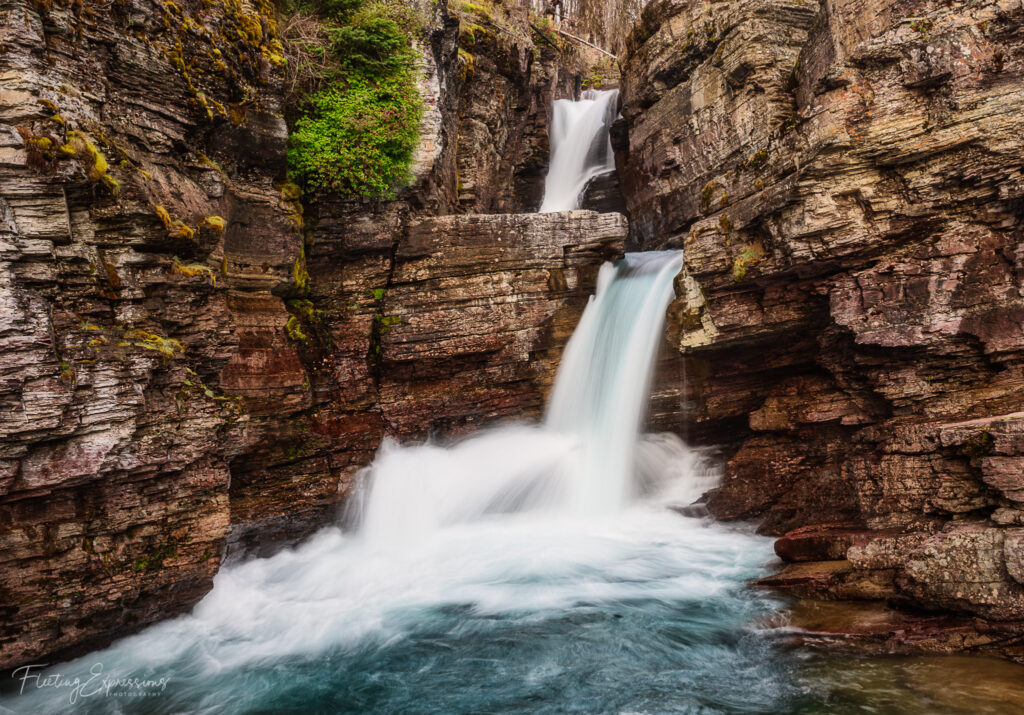
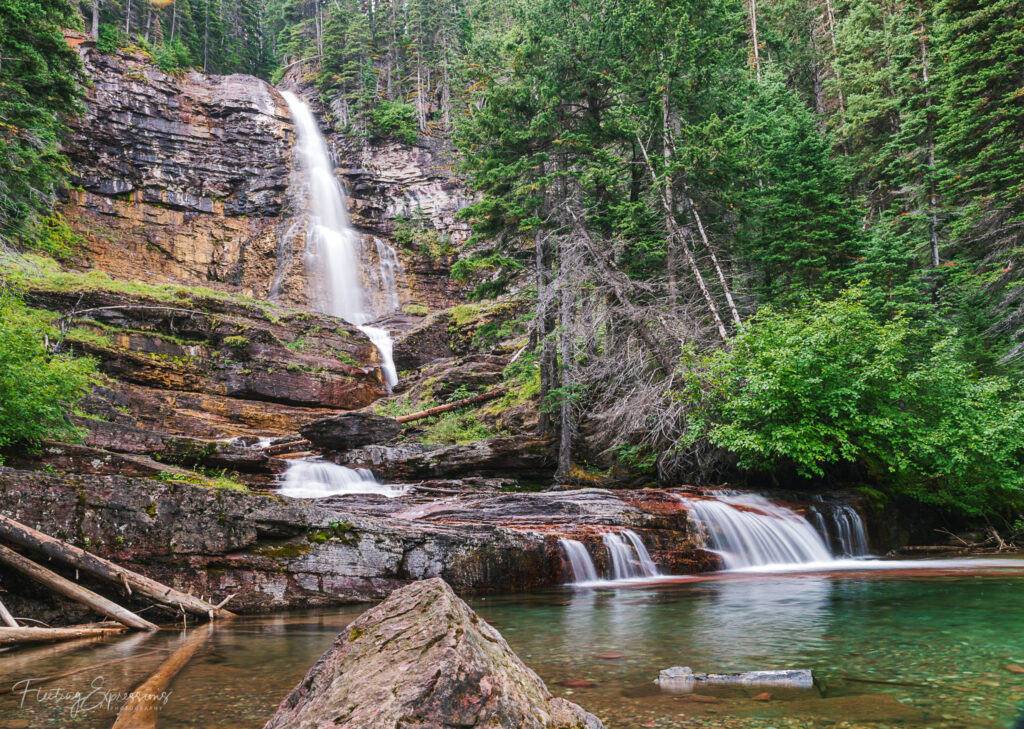
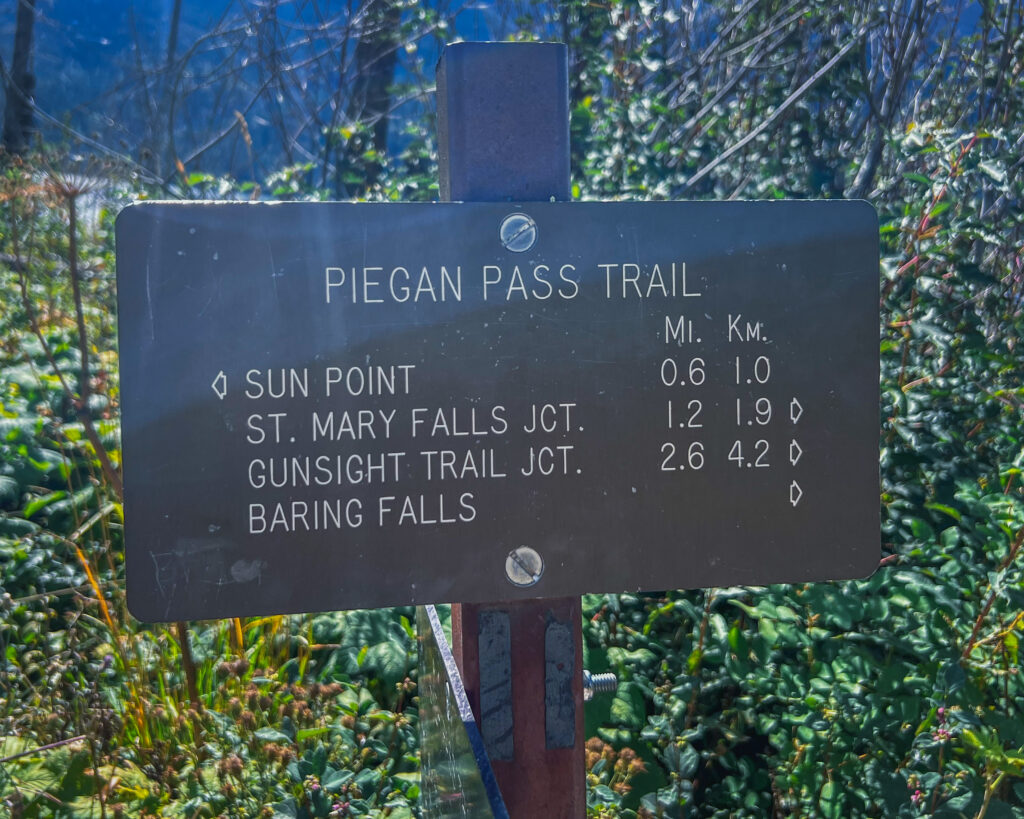
With Sun Point as my starting point, I hiked to Barring Falls via the Piegan Pass Trail. It was a 1.3 mile out and back trail through both forested and sunny sections rated as easy, though it was inching toward moderate. I should mention I made a slight (unintended) detour after leaving the falls and ended up at the Baring Creek Bridge instead of returning to the Sun Point parking lot where I had parked. Luckily, there was a shuttle stop there that took me back to the Sun Point Parking lot. Whew!
Several areas have been scorched by wildfires, likely remnants of the 2015 Reynolds Fire. The devastation is striking—whole swaths of forest left bare and blackened. It’s a sobering reminder of how quickly a fire can ravage the land. The blackened trunks of trees stand like silent sentinels against the horizon, their skeletal branches reaching skyward. Beneath them, patches of green growth peek through, a reminder of nature’s slow but steady recovery. Standing amidst the aftermath, you can’t help but feel a deep sense of loss, knowing these forests will take decades to return to their former glory.
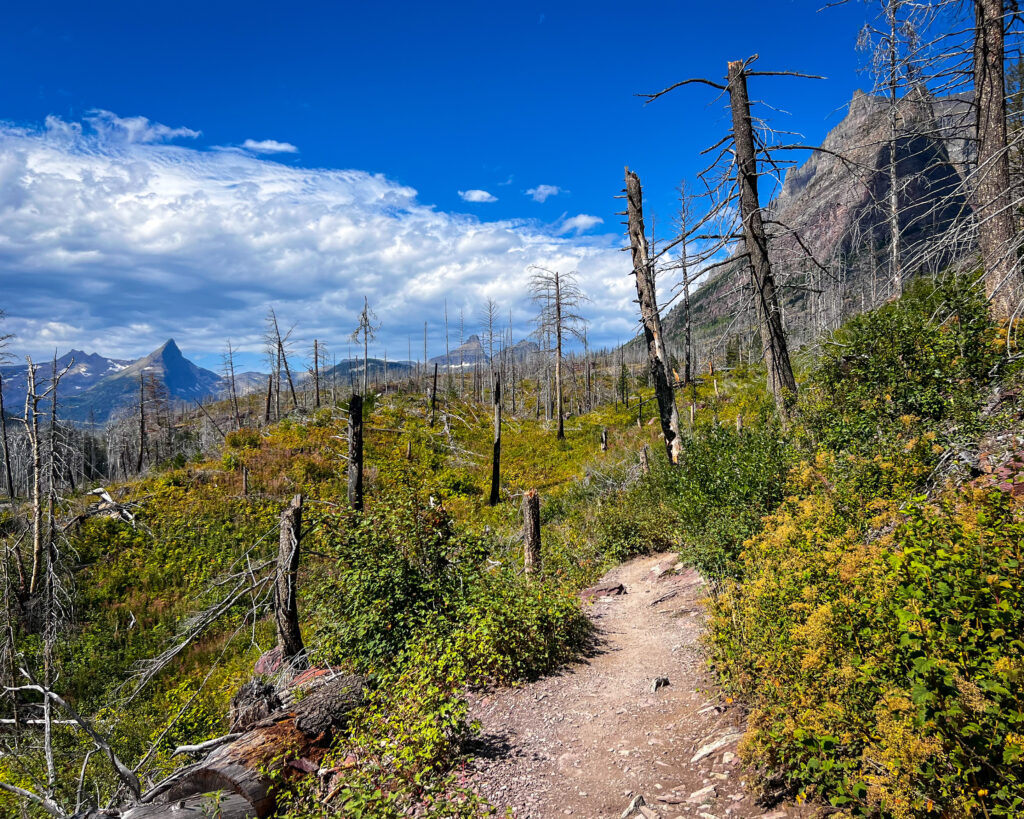
The time of year you visit will affect the water flow, but the flow wasn’t bad even in late summer. There are a lot of downed trees in the water, but you can still navigate your way to the water’s edge or even up along the bluff if you are feeling brave.
There were many people at the waterfall when I was there, so be prepared to be patient if you are going during peak season, late May to early September. The best time to see peak water flow is late spring/early summer.
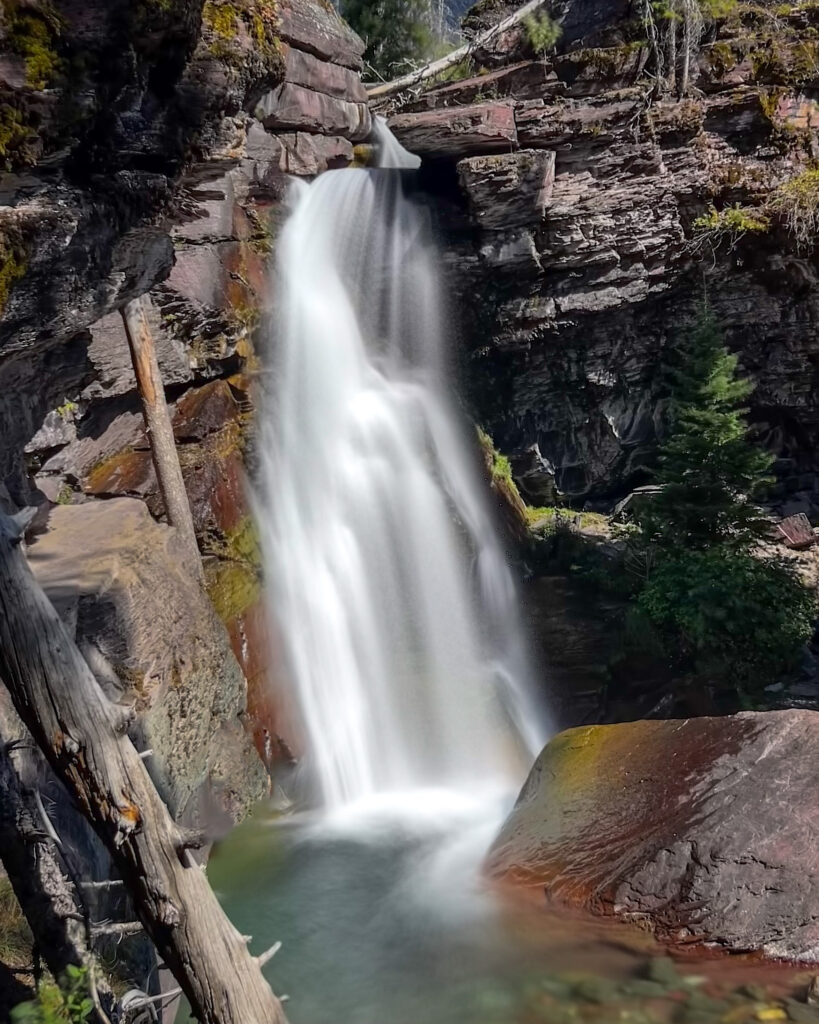
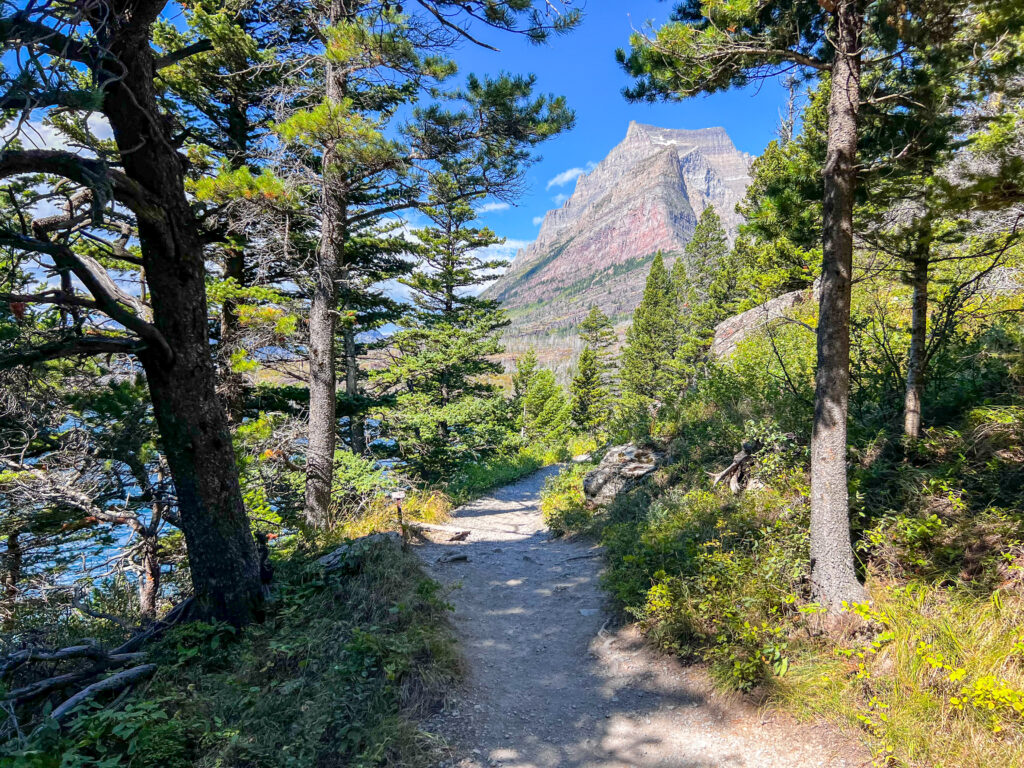
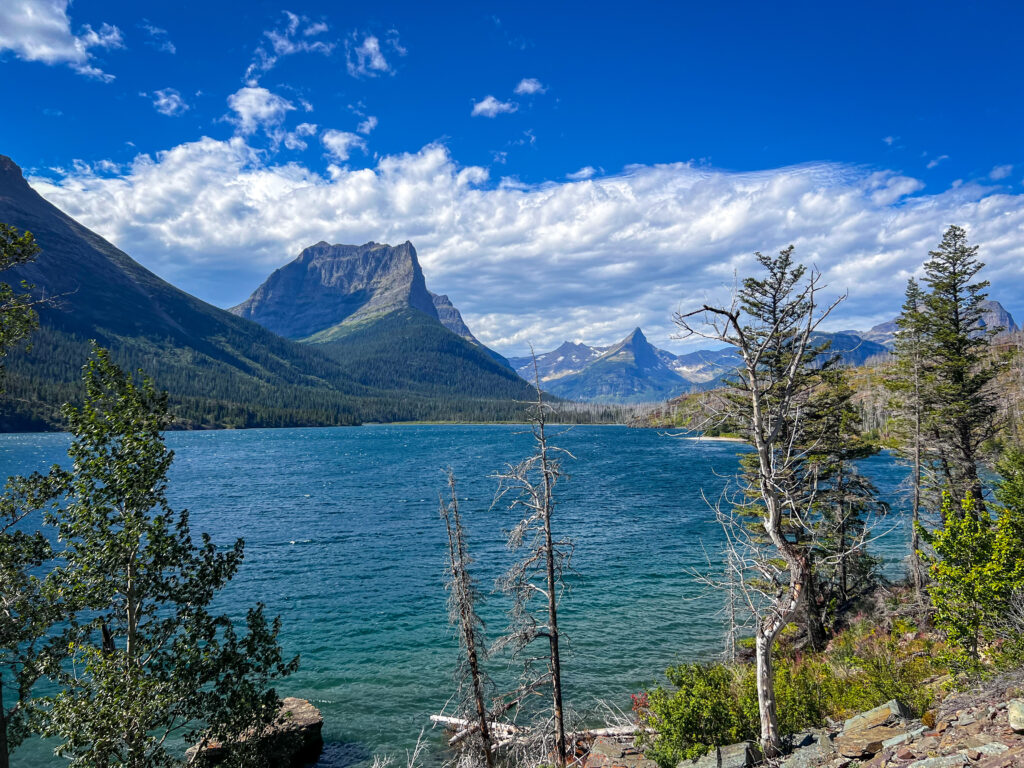
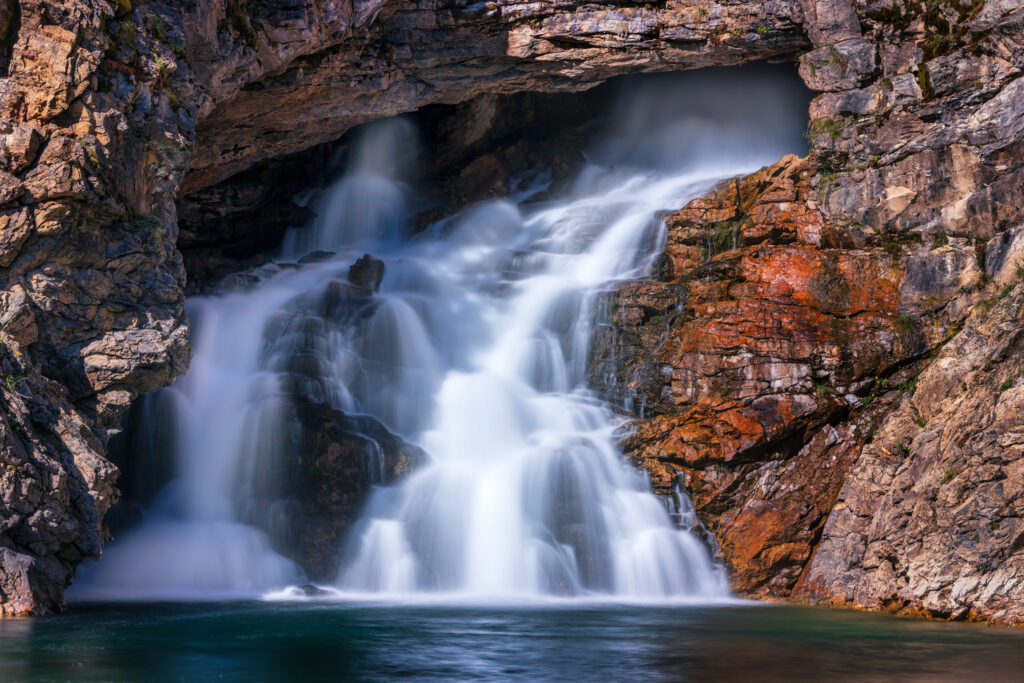
Running Eagle Falls
Running Eagle Falls is a unique and beautiful waterfall with cultural significance to the Blackfeet tribe. The falls are named in honor of Running Eagle, a legendary Blackfeet female warrior who led her tribe with strength and bravery. Visiting this site offers not only a glimpse of nature’s beauty but also a chance to reflect on the history and cultural heritage of the Blackfeet people, who consider this area sacred.
The time of year you visit will affect the water flow, but the flow wasn’t bad even in late summer. There are a lot of downed trees in the water, but you can still navigate your way to the water’s edge or even up along the bluff if you are feeling brave.
There were many people at the waterfall when I was there, so be prepared to be patient if you are going during peak season, late May to early September. The best time to see peak water flow is late spring/early summer.
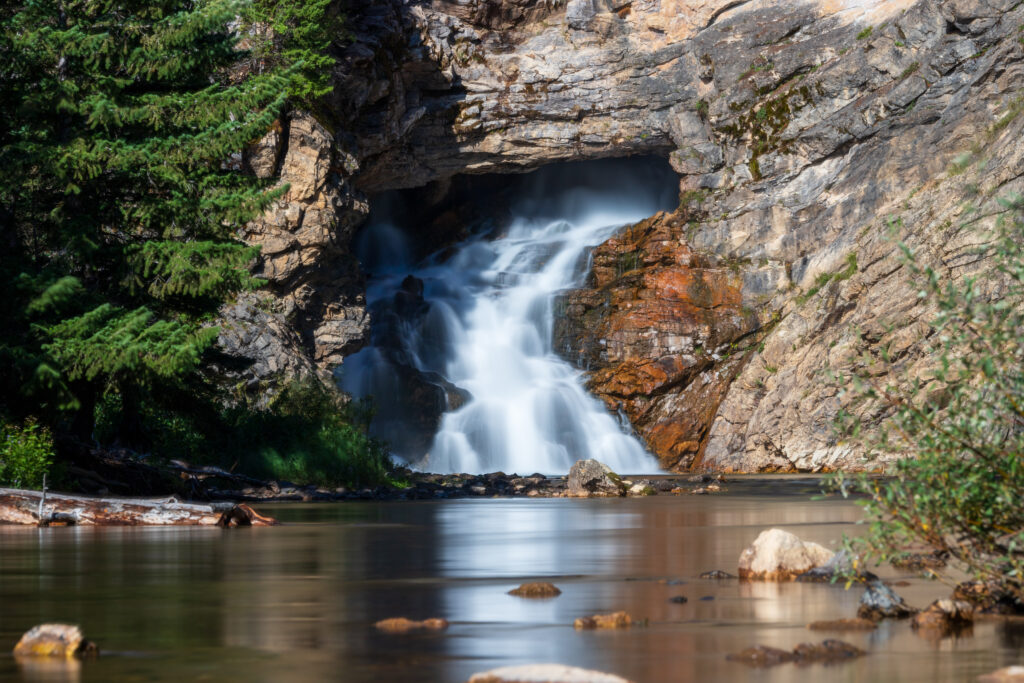
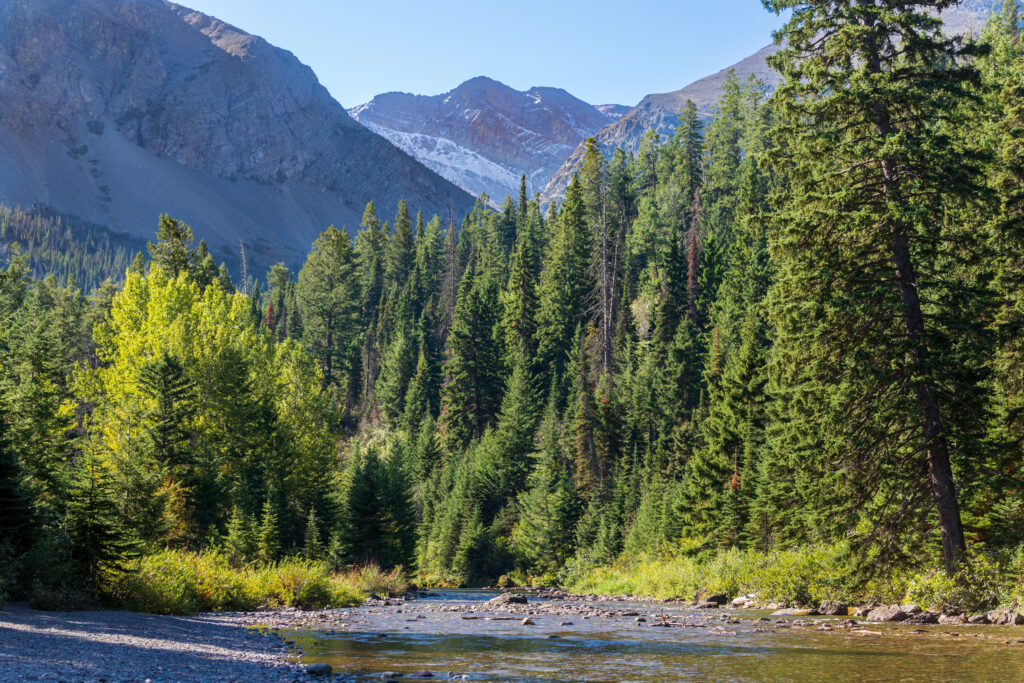
The easy trail to the falls is just 0.3 miles one-way, making it accessible to most. Its serene setting near the Two Medicine River provides a perfect backdrop for this beautiful blend of nature and history. The paved path transitions to dirt and then to rocks as you near the falls.
Once you get to the rocks, enjoying the view of Two Medicine Creek and the surrounding landscape is a great opportunity.
Depending on the composition you want to capture, there are two spots to view the falls. I recommend trying both and deciding later! After leaving the paved path, you will cross the rocky bank of Two Medicine Creek to get a Creekside view of the waterfall. You can continue up the path to a small overlook for a different perspective.
No matter when you hike the Running Eagle Falls trail, you will be rewarded with views of the stunning landscape and gorgeous waterfall. Spring and early summer will offer more water flow and a chance to see the double falls, where the water flows over the top and from the cave, merging into one of the most unique waterfalls you may ever see!
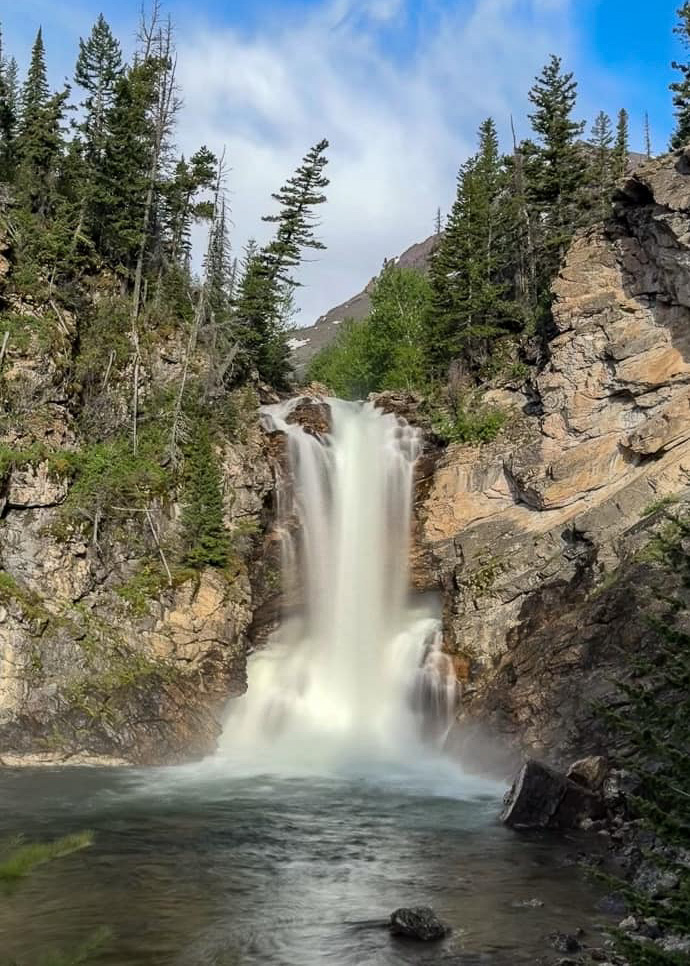
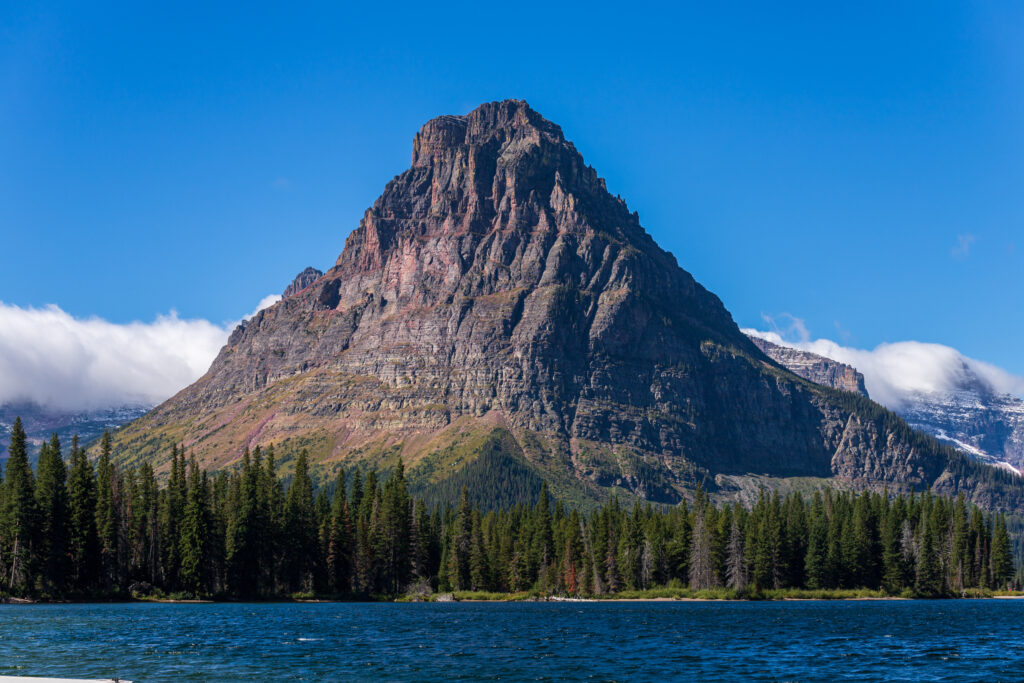
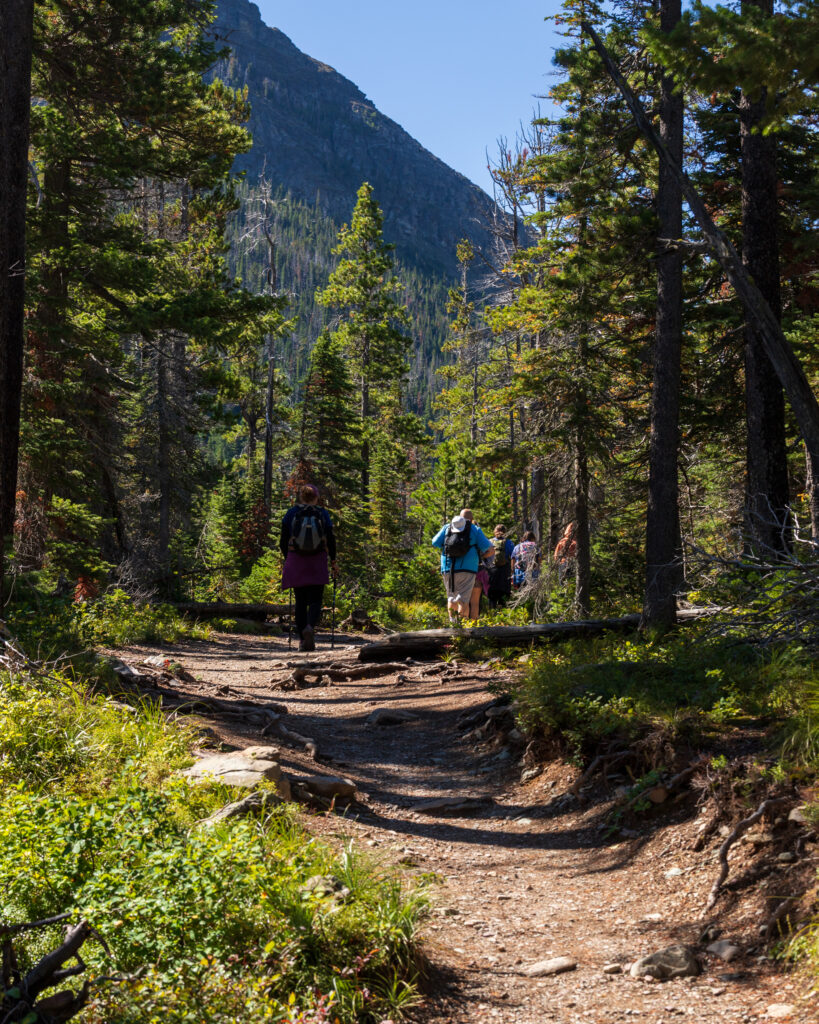
Aster Falls
Hiking to Aster Falls in the Many Glacier Valley is one of the best easy hikes in Glacier National Park. It’s a peaceful escape into nature, with forested trails and stunning views leading to one of East Glacier’s more secluded waterfalls. The hike starts at the South Shore Trailhead near Two Medicine Lake, and the round-trip journey is about 2.8 miles.
The trail is well-maintained with a mild elevation gain, making it accessible for moderate hikers and perfect for those who enjoy forest and mountain scenery without too much difficulty. As you set off on the trail, you’ll pass through serene meadows and dense woodlands, with glimpses of the towering peaks that frame the landscape. The sound of trickling water guides you along the way as Aster Creek runs nearby, adding to the peaceful atmosphere.
Eventually, the trail opens up and a slight left will lead to Aster Falls, a small but beautiful waterfall cascading over rocks into a clear pool below. It’s a perfect spot to pause, take in the sights and sounds, and perhaps enjoy a quiet moment away from the more crowded trails in the park. I enjoyed watching the chipmunks scamper around but please remember not to feed them no matter how much they beg!
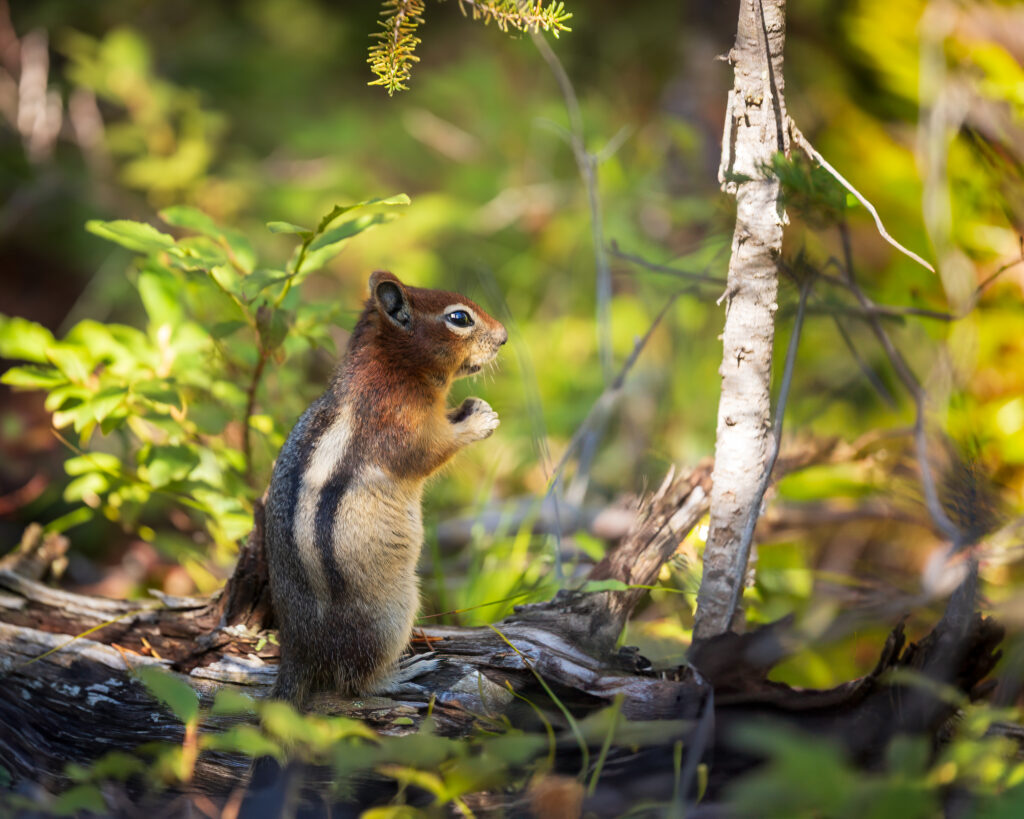
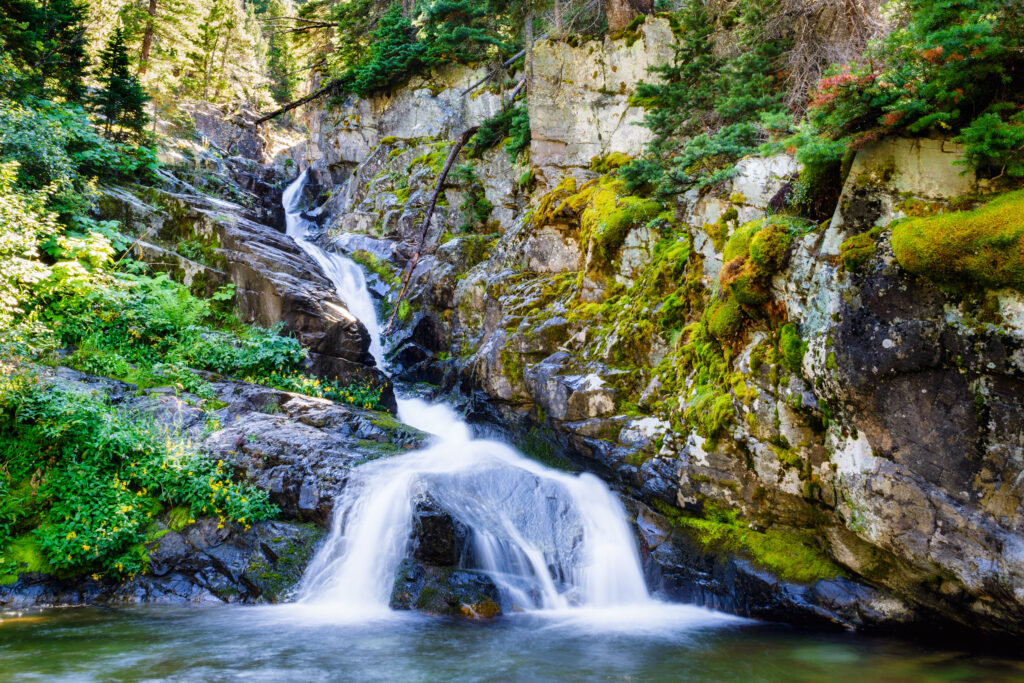
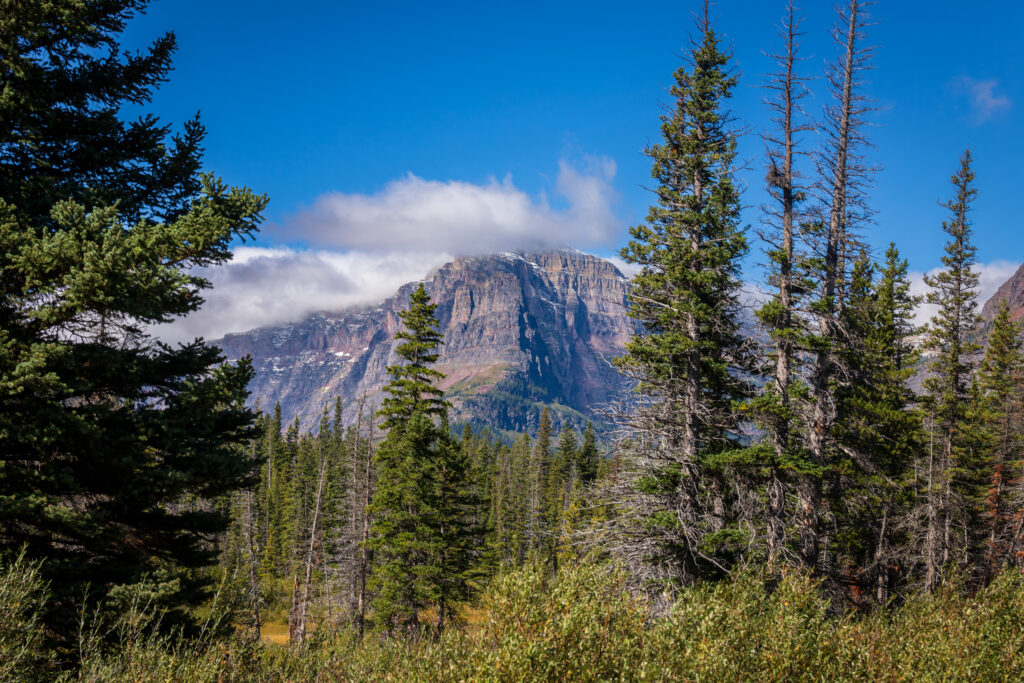
The hike to Aster Falls is special not just because of the waterfall itself but because of the tranquil setting and the diverse scenery along the way. It’s an ideal hike for those seeking a quieter, more reflective experience while still enjoying the natural beauty that defines East Glacier National Park. Whether you’re hiking solo or with loved ones, Aster Falls offers a peaceful retreat into nature.
Exploring Barring Falls, Running Eagle Falls, and Aster Falls offers the perfect blend of natural beauty, peaceful trails, and fascinating history in East Glacier National Park. Whether you’re drawn to the hidden charm of Barring Falls, the unique dual cascade of Running Eagle Falls, or the serene hike to Aster Falls, each trail promises a memorable adventure. These hikes allow you to experience the park’s stunning landscapes while connecting with nature meaningfully.
Take your time to enjoy the sounds of nature, especially the rushing water of one of these incredible waterfalls. As you explore, remember to stay safe, respect wildlife, and practice Leave No Trace principles to preserve these wonders for future generations. Ready to hit the trails? Pack your gear, lace up your boots, and start planning your East Glacier waterfall adventure today!
Looking for more hiking tips and trail guides? Check out my travel and adventure blogs for inspiration to explore the great outdoors.

